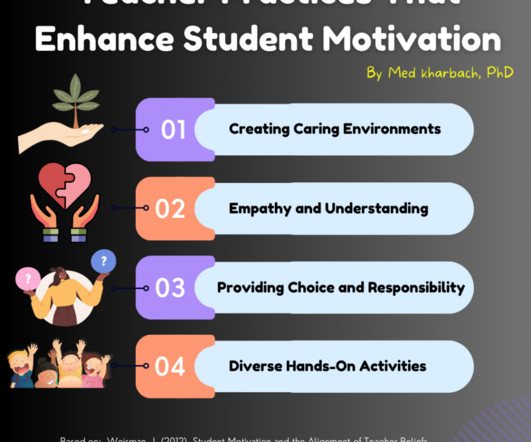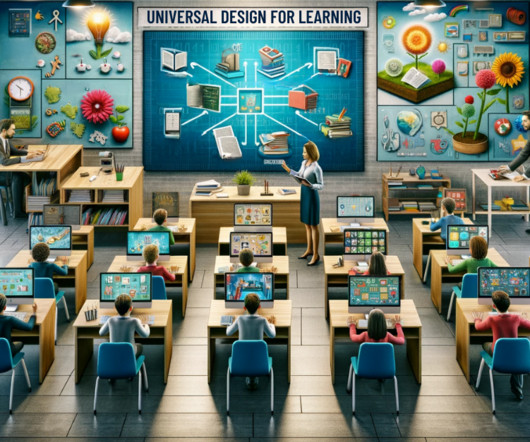18 Effective Classroom Motivation Strategies
Educational Technology and Mobile Learning
DECEMBER 28, 2023
Hands-On Activities : Encouraging investigative or experiential learning activities helps in knowledge construction. This method provides different perspectives and can foster a collaborative learning environment. References Bernaus, M., & Gardner, R. The Modern Language Journal, 92(3), 387–401. link] Guilloteaux, M.




















Let's personalize your content